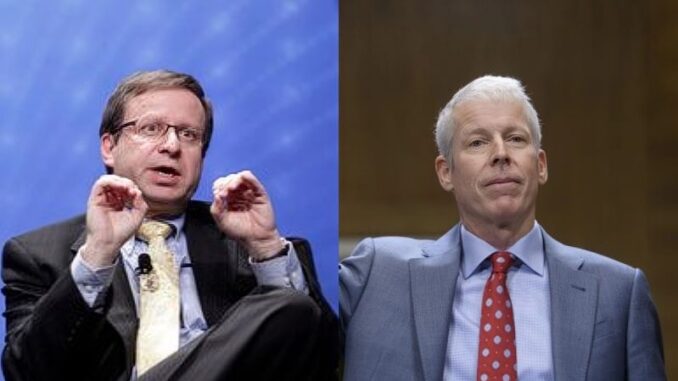
ENB Pub Note: Doug Sheridan nails it again, and as we see the fallout from Trump’s UN speech, the reports are in the process of dismantling the Obama-era declaration that CO2 is a pollutant. This will have a tremendous impact on the ability to lower regulations, but I like the aspect of the Department of Energy of looking at real science. Something that has been buried, like much of our past knowledge. Buried intentionally.
Steve Koonin writes in the WSJ, there’s a disconnect between public perceptions of climate change and climate science—and between past govt reports and the science itself. Energy Sec Chris Wright understands this. It’s why he commissioned an independent assessment by a team of five senior scientists, including [Koonin], to provide clearer insight into what’s known and not about the changing climate.
Collectively, the team brought to the task more than 200 years of research experience, almost all directly relevant to climate studies. The resulting peer-reviewed report is entirely the authors’ work, free from political influence—unlike previous assessments. It draws from UN and US climate reports, peer-reviewed research, and primary observations to focus on important aspects of climate science that have been misrepresented to nonexperts.
The report’s the first from DC in years that deviates from the narrative of a climate headed for catastrophe. That it’s findings surprised many speaks to a gov’t failure to communicate climate science accurately to the public.
The report attracted strong criticism, despite its grounding in established science. Almost 60,000 comments were submitted to the Federal Register in the month after its publication. The Environmental Defense Fund and Union of Concerned Scientists filed a lawsuit to prevent the Energy Department or the EPA from using the report in decision-making.
Most of the challenges have no scientific backing. Though scientists supporting the so-called consensus on climate change have organized several serious critiques, these at most add detail and nuance, without negating the report’s central points. They still merit response, which will form the next round in an overdue public debate on the effects of GHG emissions.
Climate policies must balance the risk of climate change against a response’s costs, efficacy and collateral effects. The report may draw anger, but it accurately portrays important aspects of climate science. Acknowledging facts is essential for informed policy decisions.
Our Take 1: Koonin’s a national—if not global—treasure and hero. He’s also immensely courageous. His book, Unsettled, which makes clear he’s no denier of human-caused climate change, has heavily informed ours and others’ views on the science of climate change. He’s also brought badly needed attention to the distortive effects of money and politics on the framing of the science.
Our Take 2: Koonin’s position isn’t that climate change doesn’t warrant our attention. Rather, his position is we don’t know enough about how the climate will actually unfold to justify turning society on its head. Although we suspect we’re a bit more concerned about where climate change will take Earth and humanity than Koonin, we weigh heavily the evidence, analyses and reasoning he emphasizes. Those looking for balanced and good-faith expertise on the subject of climate change should read his book.
Got A Tax Burden in 2025?
Crude Oil, LNG, Jet Fuel price quote
ENB Top News
ENB
Energy Dashboard
ENB Podcast
ENB Substack






Be the first to comment